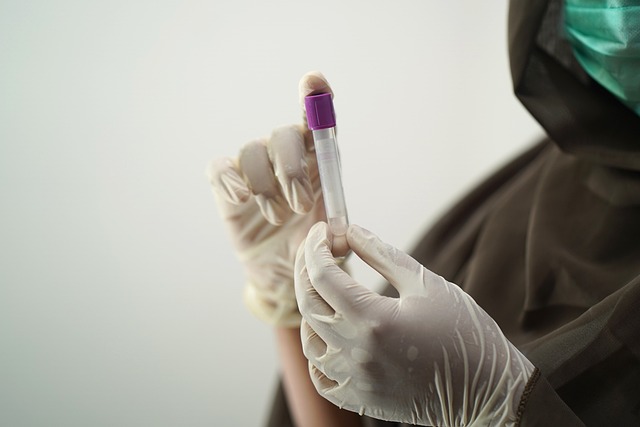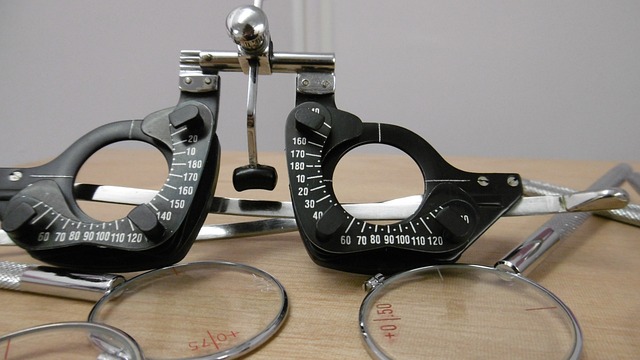The UK Vitamin D Blood Test plays a pivotal role in diagnosing and managing reproductive health issues by assessing vitamin D levels, which are crucial for fertility and hormonal balance. Commonly known as 'the sunshine vitamin,' vitamin D is integral to maintaining calcium and phosphorus homeostasis necessary for reproductive system function. In the UK, where consistent sun exposure is rare, understanding one's vitamin D status is essential, especially for those trying to conceive. The test measures serum 25-hydroxyvitamin D levels, providing a reliable indicator of an individual's vitamin D reserves and overall health. Adequate vitamin D supports the regulation of hormones like FSH and LH, and addressing deficiencies can inform medical or lifestyle interventions to improve fertility. In women, optimal vitamin D is necessary for oocyte development, while in men, it's linked to testosterone production and sperm health. Healthcare providers use the UK Vitamin D Blood Test results alongside hormone analyses to create tailored treatment plans that address both endocrine and nutritional aspects of reproductive well-being, thereby enhancing the effectiveness of fertility treatments and overall patient outcomes. This approach underscores the importance of the UK Vitamin D Blood Test as an indispensable diagnostic tool for those specializing in reproductive health.
navigating reproductive health challenges often necessitates a deep understanding of hormonal dynamics. This article sheds light on the pivotal role of hormone analysis in pinpointing reproductive issues, with a particular emphasis on the UK Vitamin D Blood Test and its significant impact on fertility outcomes. By exploring the interplay between vitamin D levels and hormone health, healthcare providers can offer personalized care that enhances reproductive success rates. Join us as we delve into the critical intersection of endocrinology and reproductive medicine to optimize treatment strategies for those facing fertility concerns.
- Decoding Hormonal Imbalances: The Role of Hormone Analysis in Reproductive Health
- Understanding UK Vitamin D Blood Test and Its Impact on Fertility
- Integrating Vitamin D Insights with Comprehensive Hormone Profiles for Enhanced Reproductive Care
Decoding Hormonal Imbalances: The Role of Hormone Analysis in Reproductive Health

Hormone analysis plays a pivotal role in understanding and addressing reproductive health issues, particularly within the UK where conditions like vitamin D deficiency are prevalent. Reproductive health can be significantly impacted by hormonal imbalances, and identifying these irregularities is crucial for effective treatment and management. Hormone analysis involves assessing various hormones, including those responsible for regulating the menstrual cycle, such as follicle-stimulating hormone (FSH) and luteinizing hormone (LH), as well as estrogen and progesterone levels. By measuring these hormones, healthcare professionals can diagnose conditions like polycystic ovary syndrome (PCOS), hypothyroidism, and other endocrine disorders that may affect fertility. The UK Vitamin D Blood Test is an integral component of this analysis, as vitamin D deficiency has been associated with hormonal imbalances and reproductive health issues. Ensuring adequate vitamin D levels is not only essential for bone health but also for the proper functioning of the endocrine system, which in turn supports overall reproductive health. Patients in the UK can benefit from this test to ascertain their vitamin D status, which may be influencing their hormone balance and reproductive capabilities. Through comprehensive hormone analysis, including the evaluation of vitamin D levels, healthcare providers can offer tailored treatment plans that address the root causes of reproductive health concerns, leading to better outcomes for patients.
Understanding UK Vitamin D Blood Test and Its Impact on Fertility

The UK Vitamin D Blood Test plays a pivotal role in assessing an individual’s vitamin D levels, which can significantly influence fertility outcomes. Vitamin D, often referred to as the ‘sunshine vitamin’, is crucial for maintaining healthy calcium and phosphorus levels within the body, both of which are necessary for the proper functioning of the reproductive system. Deficiencies in this nutrient have been associated with a variety of reproductive issues, including ovulatory disorders in women and poor semen quality in men. In the UK, where sunlight exposure may be limited due to climate or seasonal variations, understanding one’s vitamin D status through a blood test is essential for those trying to conceive. The test measures serum 25-hydroxyvitamin D levels, which reflect an individual’s vitamin D stores and overall health. Adequate levels are vital for hormonal balance and the regulation of reproductive hormones such as follicle-stimulating hormone (FSH) and luteinizing hormone (LH). Consequently, identifying any vitamin D deficiencies through this test can guide medical interventions or lifestyle changes to optimise fertility potential. For women, sufficient vitamin D levels are particularly important during the follicular phase of the menstrual cycle, as it supports the development and maturation of oocytes. Similarly, in men, vitamin D has been linked to testosterone production, which is essential for sperm health and motility. Therefore, healthcare providers often recommend corrective measures following the UK Vitamin D Blood Test results to improve fertility outcomes, ensuring a holistic approach to reproductive health.
Integrating Vitamin D Insights with Comprehensive Hormone Profiles for Enhanced Reproductive Care

Integrating vitamin D insights with comprehensive hormone profiles is a critical aspect of enhanced reproductive care, particularly for individuals in the UK seeking to understand and address reproductive issues. In the UK, Vitamin D blood tests are readily available and serve as a fundamental diagnostic tool. Vitamin D, often referred to as the ‘sunshine vitamin,’ plays an indispensable role in maintaining overall health, with specific implications for reproductive function. Adequate levels of this nutrient are associated with improved fertility outcomes; deficiencies can lead to a host of reproductive challenges, including irregular menstrual cycles and increased risk of miscarriage. By incorporating Vitamin D data into hormone analyses, healthcare providers in the UK can gain a more holistic view of a patient’s reproductive health status. This integration allows for personalized care plans that address both hormonal imbalances and potential vitamin deficiencies, thereby optimizing treatment efficacy and improving prognoses.
Furthermore, the synergy between Vitamin D insights and comprehensive hormone profiles allows for a nuanced approach to reproductive health management. For instance, in women attempting to conceive, Vitamin D supplementation in conjunction with fertility treatments can enhance the chances of a successful pregnancy. Similarly, in men, adequate vitamin D levels are linked to higher sperm count and motility, underscoring the importance of considering this nutrient’s status as part of a broader reproductive health assessment. The UK Vitamin D Blood Test, therefore, becomes a valuable component in the toolkit of any healthcare practitioner focused on reproductive well-being, enabling them to provide informed guidance and support tailored to each patient’s unique needs.
UK Vitamin D Blood Test plays a pivotal role in diagnosing reproductive issues, as its insights can significantly influence treatment outcomes. Hormone analysis, a cornerstone of reproductive health assessments, complements the information obtained from Vitamin D testing, leading to more personalized and effective care. By integrating these two components, healthcare providers can offer informed guidance tailored to individual needs, thereby enhancing fertility management and supporting overall reproductive well-being. Advances in these diagnostic approaches underscore their importance in modern medicine, particularly for those navigating the complexities of reproductive health concerns.
